Conference Speakers
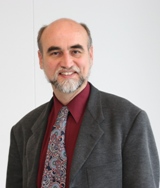
Christopher Key Chapple
CHRISTOPHER KEY CHAPPLE, Ph.D., is Navin and Pratima Doshi Professor of Indic and Comparative Theology at Loyola Marymount University. A specialist in the religions of India, he has published more than a dozen books, including In Praise of Mother Earth: The Prthivi Sukta (2012), Yoga and the Luminous (2012), Reconciling Yogas (2003), Jainism and Ecology (2002), Hinduism and Ecology (2000), Nonviolence to Animals, Earth, and Self in Asian Traditions (1993), and Karma and Creativity (1986). He serves on the advisory boards for the Forum on Religion and Ecology (Yale), the Green Yoga Association (Oakland), and the Ahimsa Center (Pomona). He edits the journal Worldviews: Global Religions, Culture, and Ecology (Brill) and serves on the advisory boards for the Forum on Religion and Ecology (Yale), the Green Yoga Association, and other organizations.
A Common Thread: The Four Abodes for Peace and Compassion
Good work in the world that moves toward peace requires attention to one's modes of engagement in the world, a person's comportment. The Brahma Viharas, recognized equally in Hinduism, Buddhism, and Jainism, describe both the path and its results. By being attentive and discerning, one cultivates what Patanjali describes as "friendliness toward the happy, compassion for those who suffer, joy among the virtuous, and the ability to stay gounded in one's best self when in the company of the wicked." This presentation will discuss the application of these "four immeasurables" from multiple perspectives.
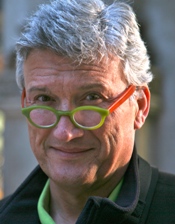
James R. Doty
JAMES R. DOTY, M.D., is Founder and Director of the Center for Compassion and Altruism Research and Education (CCARE) at the Stanford University's School of Medicine where he is a Clinical Professor of Neurosurgery. As Director of CCARE, Dr. Doty's research interests include the effect of compassion training on immunologic and other physiologic determinates of health, the use of mentoring as a method of instilling compassion in students, and the use of compassion training to decrease pain. He has interviewed internationally acclaimed practitioners of compassion, including the Dalai Lama, Thich Nhat Hanh, and Mata Amritanandamayi (Amma). Dr. Doty serves on the Board of Directors of numerous non-profit foundations, including the Dalai Lama Foundation of which he is the Chairman; and on the International Advisory Board of the Council for the Parliament of the World Relgions.
More About James R. Doty
The Compassion Imperative
Over the last three decades much has been learned about how meditation affects the brain and a more clear understanding of neuroplasticity has developed. Through this work, the practice of mindfulness has gained immense popularity. While mindfulness allows for one to be present and have non-judgmental awareness of one’s thoughts, it is compassion with intent that has been critical to the survival of our species and will be even more so in the future. The evolutionary basis for compassion and its neural substrate will be reviewed. Additionally, the scientific literature will be discussed on how being compassionate has a profound and positive effect on the recipient and just as important of an effect on the giver.

Peter Flugel
PETER FLUGEL, Ph.D., is Reader in the Department of the Study of Religions, University of London. He is the founding Chair of the Centre of Jaina Studies at the London School of Oriental and African Studies(SOAS). Dr. Flugel, has published widely on Jaina history and culture. He is editor of the Routledge Advances in Jaina Studies, the International Journal of Jaina Studies, and the Newsletter of the Centre of Jaina Studies. He hosts the Annual Jaina Studies Workshop at SOAS. http://www.soas.ac.uk/jainastudies
Acharya Bhikshu’s Rejection of Worldly Compassion and Acharya Tulsi’s Moral Turn
The rejection of worldly compassion and charity from a perspective of soteriological fundamentalism advocated by Acharya Bhikshu (1727-1803), the founder of the Jain sect of Terapanth, provoked one of the most intense and persistent debates in the Jain tradition, lasting for almost two centuries. During this time almost the entire Jain world set itself against the Terapanth while adopting many of its organizational innovations. The ninth leader of Terapanth, Acharya Tulsi (1914-1997), managed to turn this predicament on its head. He introduced a series of ingenious doctrinal innovations, which accomplished a balance between the imperative to remain true to the mendicant path outlined by Acharya Bhikshu and the significance of engaging in a spiritual quest of transforming the world. For Acharya Tulsi, acts of ‘worldly compassion’ remained anathema for the soteriological path. But at the same time he propagated common morality, or naitikata as the bedrock of all religion. As the consequence of his reforms, the Terapanth is now the globally most recognizable exponent of the Jain tradition.
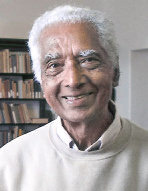
Padmanabh S. Jaini
PADMANABH S. JAINI, Ph.D. is Professor emeritus of Buddhist Studies and co-founder of the Group in Buddhist Studies. Before joining UC Berkeley in 1972, he taught at the School of Oriental and African Studies, London and at the University of Michigan, Ann Arbor. He is the author of numerous monographs and articles on both Buddhism and Jainism.
His expertise in both the Jain and Buddhist texts and sources makes him a unique and rare scholar. His major publications include The Jaina Path of Purification (1979), Gender and Salvation: Jaina Debates on the Spiritual Liberation of Women (1991), Collected Papers on Jaina Studies (2000), and Collected Papers on Buddhist Studies (2001). He was honored by a Festschrift (2003) with contributions on early Buddhism and Jainism. He has been feaured in numerous forums, including in the Alliance of Religions and Conservation (UK).
In 2009, Prof. Jaini was honored with the Ahimsa Award, given by the Institute of Jainology, U.K., on the occasion of the Ahimsa Day celebration at the House of Commons, London.
A Day with Acharya Tulsi: Taking Care of Jain Monks and Nuns
This conference happily coincides with the Birth-Centenary celebrations of Acharya Tulsi (1914-1994), the spiritual leader and administrative head of hundreds of white-cloth clad itinerant Jain monks (sadhus) and nuns (sadhvis), a group known as Terapanth. In September 1979, I had the good fortune of attending a large gathering of this group held in a small town in Rajasthan, called Rajaldesar, presided over by Acharya Tulsi. At this meeting, known by its rather unique designation, maryada mahotsava (Festival for Discipline), Acharya Tulsi announced new initiatives, some quite unanticipated for the welfare and growth of his mendicant Order (sangha). I shall comment on some of these remarkable innovations and their lasting effect on the stability of the Sangha and its activities in promoting the practices of mindfulness and nonviolence.

Nipun Mehta
NIPUN MEHTA, is the founder of ServiceSpace, an all volunteer-run organization using technology to inspire greater volunteerism. At the age of 25, Nipun quit his job to become a full time volunteer. What started as an experiment with friends is now a global ecosystem of over 500,000 members who have not only delivered millions of dollars in service for free but are regenerating a gift culture. Their projects range from DailyGood to KindSpring to KarmaKitchen. Nipun has received the Jefferson Award for Public Service, the President's Volunteer Service Award; and THE Dalia Lama's Unsung Hero of Compassion award. He is routinely invited to share his message of "giftivism" with a wide range of audiences and his speech at UPenn commencement was read by millions. Nipun's mission statement in life reads: "Bring smiles in the world and stillness in my heart."
From Internet to Inner-Net: Innovations in CCMIn this talk, Nipun Mehta will share the highlights from his journey of building distributed and decentralized movements that lead with inner transformation, of leveraging technology to nurture generosity, of cultivating practices that encourage "being the change" and ultimately, of putting priceless gifts -- like empathy, mindfulness and compassion -- into greater circulation. This is a story of invisible heroes, the volunteers who are engaged in that labor of love. Slowly, and often silently, they are building a new world, leading with the heart, but also engaging hands and head. They move to a different beat, with the common understanding that being the change, changes the being.

Jenny Phillips
JENNY PHILLIPS, Ph.D., is a cultural anthropologist, writer, and psychiatric nurse. Over the past ten years, she has worked with men in both state and county prisons, teaching courses on emotional literacy skills.
In 2008, Phillips released the documentary, The Dhamma Brothers, which challenges the assumptions about the nature of prisons as solely places of punishment, and prisoners with no prospect of reform. Deeply rooted in the Vipassana meditation program at Donaldson Correctional Facility, the story of the Dhamma Brothers serves as an example to other prisons. While working on the film, she received more than 200 letters from the Alabama prisoners documenting their changing lives in the prison and their quest for inner peace. These letters were published in a book she edited, Letters From the Dhamma Brothers (2008).
More About Jenny Phillips
Care and Compassion Inside a Maximum-Security Prison:East Meets West in the Deep South
This presentation will explore what happened at Donaldson Correctional Facility, a maximumsecurity prison outside of Birmingham, Alabama, when an ancient meditation program, Vipassana, was offered to a group of the prisoners. Today, twelve years after Vipassana was introduced, over 500 of the 1,500 prisoners have taken at least one 10-day Vipassana course. We will examine several individual stories of the men who call themselves the Dhamma Brothers, and discuss their collective journey and their newly constructed brotherhood behind prison walls and their practice of loving kindness as they are taught to project unbounded friendliness and compassion out to the world. This is a story of hope, courage and the opportunity for change.
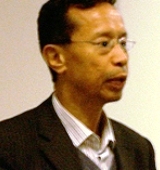
Lobsang Rapgay
LOBSANG RAPGAY, Ph.D., is a research psychologist and Director of the Study on Sustained Attention, and Working Memory in Anxiety Disorders, and Learning at the Department of Psychiatry, UCLA. He was the Clinical Director of the UCLA Behavioral Medicine Clinic and Program, a training clinic for psychiatric residents and psychology interns. His basic research focuses on studying internal sustained attention and its neural correlates. He also seeks to translate these findings into clinical application for treating anxiety disorders and learning issues. He was a Tibetan Buddhist monk for 18 years and is well versed in Tibetan Buddhist theory and practice. He is the author of many books, including Tibetan Medicine: A Holistic Approach to Better Health.
More About Lobsang Rapgay
Classical Mindfulness: Going Beyond Mindfulness Based Stress Reduction (MBSR) for Managing Anxiety
With the growing impact of MBSR in the field of psychology and cognitive neuroscience, there is an increasing interest in understanding the original teachings of mindfulness. Against a brief background of MBSR, this presentation seeks to demonstrate how Classical Mindfulness as embodied in the practice of concentration (samatha) is consistent with our understanding of the interface between sustained attention and working memory as supported by a preliminary study, as well with findings from western cognitive sciences, and how interaction between the two can be translated for clinical application to manage our anxiety.
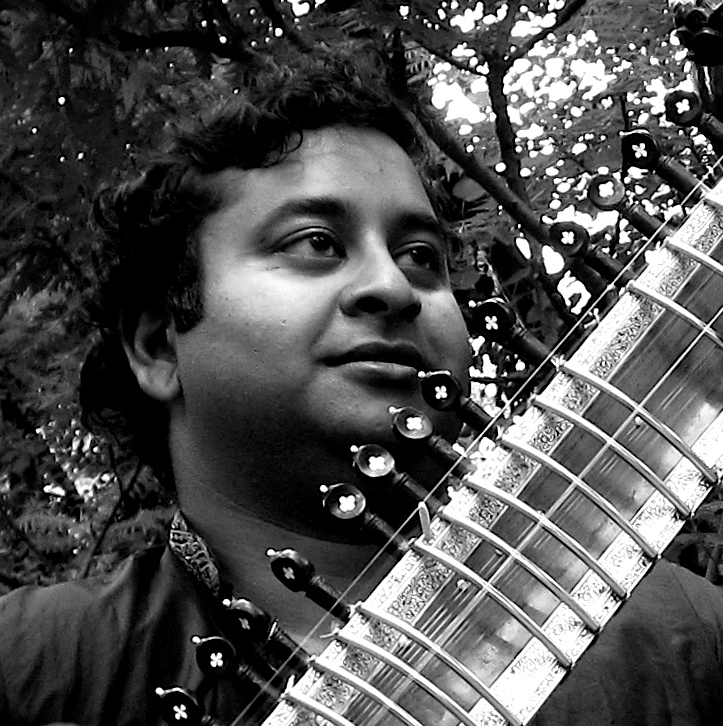
Srinivas Reddy
SRINIVAS REDDY, Ph.D., is an Assistant Professor of South and Southeast Asian Studies at the Indian Institute of Technology (IIT), Gandhinagar, India. He received his doctorate from the University of California, Berkeley where he studied Sanskrit, Tamil and Telugu literary traditions and wrote his thesis on the Vijayanagara emperor Krishnadevaraya and his grand Telugu epic, Amuktamalyada. Subsequently, his translation of this work was published as, Giver of the Worn Garland (Penguin Books, 2011). Dr. Reddy is also a professional concert sitarist and has given numerous recitals throughout the world. He has three albums to his credit: GITA (1999), Sitar & Tabla (2001) and Hemant & Jog (2008). He was trained by Sri Partha Chatterjeea, direct disciple of the late sitar maestro Pandit Nikhil Banerjee.
More About Srinivas Reddy
Developing Compassion Through Art
According to the classical Indian theory of aesthetics, all art is experienced as"rasa," or emotive flavor--a psycho-somatic nectar that is to be imbued by both performer and the audience. One of the fundamental rasas expressed through musical arts is that of karuna or compassion. Through the methodical unfolding of a raga, the mood of karuna can be evoked and explored to create an affected state of consciousness. The goal of Indian classical arts, then, is to create this intense space of feeling and empathy, leading to a state of peace (shanti), and ultimately to ultimate release (moksha). Thus the power of music is not only to entertain, but to inspire and also to transform the mind of both artist and the audience.
This presentation will be followed by a sitar concert, in which Dr. Reddy will be accompanied by Hemant Ekbote on Tabla.
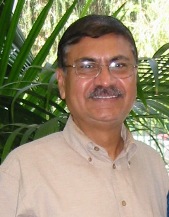
Nirmal Sethia
NIRMAL SETHIA is Professor of Management and Director of Center for Business and Design in the College of Business Administration at California State Polytechnic University, Pomona. Dr. Sethia has received major grants from the National Science Foundation and the National Endowment the Arts. Currently, under the auspices of Center for Business and Design, he is engaged in creating an international network of professionals committed to Business-Design partnership for a sustainable human future. He is particularly interested in exploring the relevance of Gandhian philosophy and values, including Ahimsa, to leadership in business and design. He holds Bachelors and Masters degrees in Electrical Engineering, and Ph. D. in Organizational Studies. He studied at Indian Institute of Technology, Bombay and the University of Wisconsin, Madison.
Caring Mindfully: The Value of Design Thinking
Caring is natural, and almost instinctive when we think of caring for loved ones-our family and friends. But it is not easy to get care right: it is hard to tell if our care is not enough, or if it is more than enough; it is also hard to tell if our care is having the intended impact or the opposite. Caring becomes even more challenging as we expand our circle and scope of caringat times due to what our professional responsibilities entail, at other time due to what our conscience prods us for. Thus, caring requires us to be mindful. This presentation will explore the ways in which design thinking can help us in caring mindfully.

Jeff Smith
JEFF SMITH is co-founder and CEO of LUNAR DESIGNS, named by the Business Week in the top 10 award-winning American product design firms. He has received numerous design awards to his credit. Most recently, LUNAR has received the prestigious National Design Award for Product Design from the Smithsonian Cooper-Hewitt National Design Museum. Jeff also co-founded Nova Cruz Products, Satellite Models and, most recently, T’emogique. Under his leadership, LUNAR, which is based in the Silicone Valley, has become a world leader in creating successful and memorable products for the consumer, technology, and medical industries.
Caring Design: The Lunar Journey
Successful design has many formulas. Good design has only one—caring. In this mode of design, needs of the customer have to be the first and foremost in our mind. This presentation will highlight Lunar’s philosophy and practice of caring design. Drawing upon specific examples from Lunar's work in association with Stanford University’s BioDesign initiative, this presentation will illustrate how caring design can contribute toward making lives better for people the world over; and how this engagement in caring design externally is helping Lunar become a more caring organization internally.
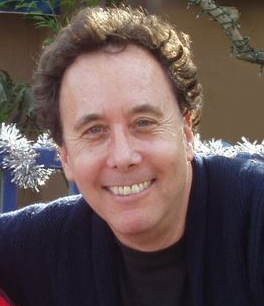
Michael Tobias
MICHAEL TOBIAS, Ph.D., is a world-renowned global ecologist, author, filmmaker, historian, and explorer. He is the author of more than 35 books and director and producer of nearly 100 films, documentaries and T.V. series. His field research has taken him to some 80 countries. Tobias is the President and CEO of the Dancing Star Foundation, a California nonprofit public benefit corporation devoted to animal welfare, international biodiversity conservation and environmental education. For his work he has received numerous awards and honors, including the international “ Courage of Conscience Award” for his passionate commitment to animal rights, nature and nonviolence; and, the Parabola Focus Award for his long-standing body of work aimed at creating a better world. Dr. Tobias is director and producer of the film, Yasuni: A Mediation on Life, which premiered at the Rio+20 Summit in June 2012. Dr. Tobias is a Goodwill Ambassador for the Yasuni-ITT Initiative to save Ecuador's heart of the Amazon.
More About Dacing Star Foundation
Ecology of Care
Tobias will discuss the "ecology of care" which encompasses both mindfulness and compassion as critical pillars for local, regional and global conservation and conflict resolution. His focus, on rescuing individuals, species, populations and habitat from oblivion is predicated upon an approach to science that is ethics driven. This often contradictory methodology for conservation biology, animal rights, and the engendering of trans-boundary ecological corridors involves one particularly ungainly species, Homo sapiens, in its historic and contemporary attempts to survive. But what is our survival worth, in the scope of the greater biological world? How can so called sustainability mean anything to anyone when our species has, for the most part, placed itself at the zenith of all other life forms? Is there even latitude for sane conversation amongst ecologists and ethicists amid the plethora of platitudes that have enabled self-importance and ego to obfuscate and undermine unconditional love?
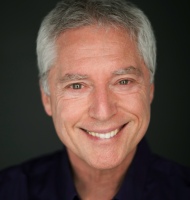
B. Alan Wallace
B. ALAN WALLACE, Ph.D., is President and Founder of Santa Barbara Institute of Consciousness Studies. Ordained as a Buddhist monk by the Dalai Lama in 1975, he has taught Buddhist meditation and philosophy worldwide since 1976, and has served as interpreter for numerous Tibetan scholars and contemplatives, including the Dalai Lama. After graduating summa cum laude from Amherst College, where he studied physics and the philosophy of science, he returned his monastic vows and went on to earn his Ph.D. in religious studies at Stanford University. He is one of the most prolific writer and translators of books on Tibetan Buddhism, medicine, language and culture and the interface between science and Buddhism. His most recent books include Dreaming Yourself Awake: Lucid Dreaming and Tibetan Dream Yoga for Insight and Transformation; Meditations of a Buddhist Skeptic: A Manifesto for the Mind Sciences and Contemplative Practice; Stilling the Mind; Minding Closely: The Four Applications of Mindfulness; Mind in the Balance: Meditation in Science, Buddhism, and Christianity; and Hidden Dimensions: The Unification of Physics and Consciousness; Unlocking the Power of the Focused Mind; Genuine Happiness: Meditation as a Path to Fulfillment; and The Four Immeasurables: Cultivating a Boundless Heart.
More About B. Alan Wallace
Cultivating Conative Intelligence
Conation is the mental faculty of desiring and intending, so it is central to all our aspirations and goals in life. As His Holiness the Dalai Lama says, the very purpose of our lives is to find happiness and to be free from suffering. But what type of happiness shall we seek, how can we free ourselves from suffering and its underlying causes, and how can we be effective in realizing our aspirations? In this lecture, Alan Wallace will discuss the nature of happiness and of suffering, how to cultivate conative intelligence through a combination of wisdom and compassion, and how to achieve greater freedom of will, so that our actions are motivated by conative intelligence, rather than mere instinct or habit.
Dr. Wallace will also lead a meditation session, providing the experience and keys for cultivating relaxation, stillness, and clarity as the means for enhancing attention and achieving inner peace.

Gianfranco Zaccai
GIANFRANCO ZACCAI is Co-Founder, President and Chief Design Officer of Design Continuum, an internationally recognized design and innovation consultancy. He serves as Chairman of the Board of Directors of the Design Management Institute (DMI) in Boston and on the Board of Advisors to the College of Visual and Performing Arts at Syracuse University. He is also a Visiting Lecturer at the SDA Bocconi School of Management in Milan, Italy. He has been associated with a variety of development projects in Mexico, Colombia, South Africa, India and Chile; and has a keen interest in finding innovative solutions to promote sustainable lifestyles. Zaccai has been awarded honorary doctorates from North Carolina State University and Syracuse University.
Empathetic Design and Human Centered Innovation Design is essential in improving the human condition. In our practice at Design Continuum we seek to uncover and ameliorate problem areas while understanding and addressing people’s aspirations. We then seek to transform these insights to inform the creation of multiple touch points and interactions that can foster greater happiness. A deep and broad empathy with diverse people in collaboration with multiple disciplines leads to the creation of a holistic and actionable vision that can be made real in a sustainable way. Understanding people at all points in the socio-economic pyramid to uncover opportunities is a fundamental starting point of Human Centered Design.
